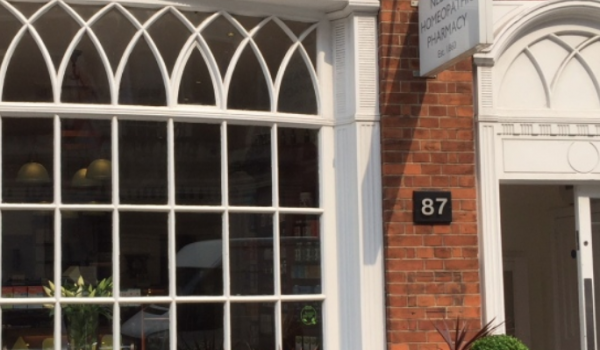Homeopathy
The medical system:
Homeopathy is a medical system first developed by Samuel Hahnemann at the beginning of the 18th century. Since then it has been continuously developed and homeopathic practice has spread worldwide and it is now one of the most widely used health systems after conventional medicine. As it takes into account the individual’s symptoms and their psychological and environmental preferences, it is one of the most holistic approaches available. Homeopathy was included in the services of the NHS from the start of the health service in 1947. However, currently funding restrictions on the freedoms of practitioners to choose from a full range of options have meant that access to homeopathy through the NHS is now very limited.
- The principle behind homeopathy is the remedying of like with like. This means that the remedy chosen is usually something that, if taken in large amounts, could produce symptoms that match the patient’s illness. Homeopathic physicians see that the symptoms of the illness are often an expression of how the individual is dealing with a deeper underlying cause and as such it is logical to use something that in healthy people has the potential to produce those symptoms.
- By using remedies in a very diluted form homeopathy aims to help the patient’s illness by stimulation of their own healing reaction.
- Because homeopathic medicines are made by multiple, serial dilutions of natural materials, homeopathic remedies are safe and generally free of side effects although they can cause a therapeutic healing reaction. They can be used alongside conventional medicines when this is necessary.
- The task of the homeopathic practitioner is to get a clear idea of the patient’s health problems and symptoms but also to understand as much as possible about their nature. This individual picture is what then informs the choice of appropriate remedy.
- Homeopathy is therefore a system that starts from the individual and unique experience of the patient. In this way homeopathy offers a marked contrast to the way that conventional medicine can sometimes seem to become impersonal.
Further information:
If you would like to read more about homeopathy, helpful and clear information is available on the two websites below:
- The British Homeopathic Association britishhomeopathic.org
- The Faculty of Homeopathy https://facultyofhomeopathy.org
Both of these websites give general information about homeopathy but also provide further links. They also give some idea of the ongoing research supporting homeopathy. This may be of interest given that homeopathy is sometimes dismissed as lacking in evidence.
You may also wish to review books authored or edited by the practitioners of the practice:
- David Owen is the author of Principles and Practice of Homeopathy: the Therapeutic and Healing Process
- Patricia Ridsdale and David Owen are the editors of the 2nd revised edition of Andrew Lockie’s Encyclopedia of Homeopathy
Evidence, Evidence Based Medicine and experience:
There is, in fact, a very long tradition of thorough research and evidence gathering within homeopathy. The remedies used are selected according to detailed pictures of how people respond in trials which, in homeopathy, are organized in a form called provings. The range of remedies that can be used has continued to expand as new remedies are carefully studied and examined. Rigorous research into homeopathy is published through the respected and peer reviewed journal Homeopathy. While it is true that the individualised nature of homeopathy means that randomised controlled trials are often not the best way to research the effectiveness of homeopathy, or indeed of other complex interventions, there is a strong and evolving body of evidence that does support homeopathy.
However, many people choose homeopathy because they have encountered its effectiveness themselves, or through the experience of friends or family members. Because the effects of homeopathy can be so profound and beneficial, especially where conventional medicine has little to offer, or has not proved effective, individual experience and testimonials are often what draw people to homeopathy as patients and also as practitioners.
Our Practitioners:
Currently Dr David Owen and Dr Dora Perger offer homeopathic consultations at the Natural Practice. All of these doctors have passed accredited training in homeopathy and are members of the Faculty of Homeopathy (MFHom). Between them they have a very wide experience, not only in homeopathy, but in conventional medicine, in research, in teaching at undergraduate and post-graduate levels and in writing about homeopathy and healthcare. There is a strong involvement from within the practitioners in the important and internationally recognised work of the Faculty of Homeopathy. Because of their wide experience, in addition to the use of homeopathy, they draw on a full range of therapeutic skills and techniques to try to find the best form of help for individual patients. Where a number of different strategies are employed this is often now described as Integrative Medicine.
Provision of remedies:
The Natural Practice is able to provide homeopathic remedies, as prescribed by the practitioners, through its skilled and experienced dispensing staff. These can be dispensed directly or posted to patients.
Practitioners
Dr Teodora (Dora) Perger
Homeopath



